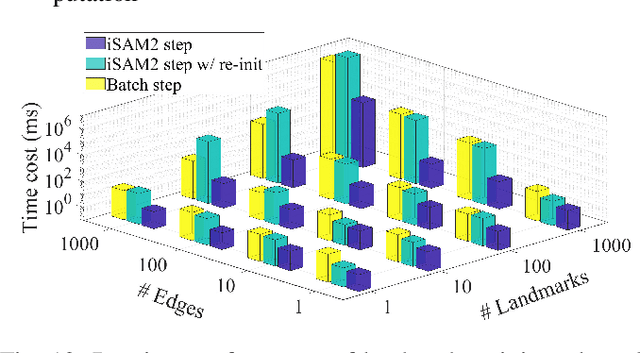Consensus-Informed Optimization Over Mixtures for Ambiguity-Aware Object SLAM
Paper and Code
Jul 20, 2021



Objects could often have multiple probable poses in single-shot measurements due to symmetry, occlusion or perceptual failures. A robust object-level simultaneous localization and mapping (object SLAM) algorithm needs to be aware of the pose ambiguity. We propose to maintain and subsequently dis-ambiguate the multiple pose interpretations to gradually recover a globally consistent world representation. The max-mixtures model is applied to implicitly and efficiently track all pose hypotheses. The temporally consistent hypotheses are extracted to guide the optimization solution into the global optimum. This consensus-informed inference method is implemented on top of the incremental SLAM framework iSAM2, via landmark variable re-initialization.
 Add to Chrome
Add to Chrome Add to Firefox
Add to Firefox Add to Edge
Add to Edge